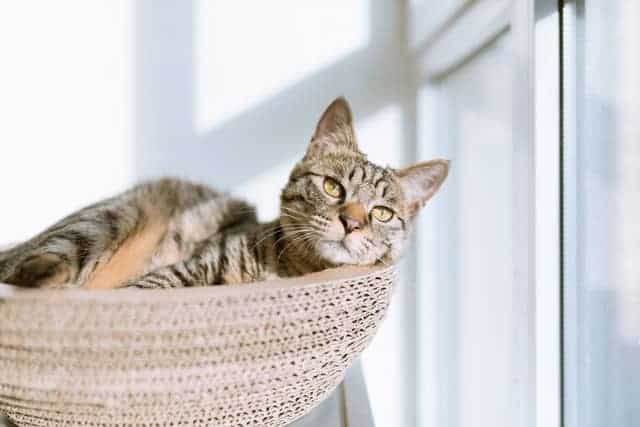
Experts often recommend neutering the feline in different cases, but how to improve the life of the neutered cat?
The reasons for sterilizing a cat are really many, if we consider those of hygiene, public order and infectious ones. An unsterilized cat can be a big problem for the entire cat community in the area but also for humans. To give just a few examples of why it is better to sterilize a cat, we report the main reasons below:
- during the matings in territory, serious viruses such as FIV (feline AIDS) and FELV (feline leukemia) spread;
- unsterilized adult male cats also attack female cats (even neutered ones) and similarly spread FIV and FELV;
- a cat can give birth two / three times a year up to 12-14 kittens;
- unsterilized male cats also become aggressive towards humans;
- the males that the non-sterilized females mark with feces and more often with stinking urine their presence on the territory;
- uterine prolapses and ovarian cancers may occur in unsterilized elderly cats;
- and also so that you know that all the catteries in Italy abound with kittens that will not all find a family.
These and many other reasons why it is important to sterilize the cat. In this article, however, we will assume that we will deal with the sterilization of the feline and subsequently we will understand how to improve the life of the neutered cat. Let’s find out together in the next paragraphs how to help our dog to benefit from this condition.
Avoid overweight
Following the sterilization of the animal, the cat no longer feeling the need to mate begins to be more lazy and sedentary and all this leads to an involuntary weight gain. Fortunately, there are specialized shops on the market where it is possible to buy products adapted to the needs of the animal that lives this particular condition.
Nutrition and hormonal changes
The issue of nutrition also becomes important because the cat that undergoes sterilization faces hormonal changes that cause it to absorb much more and consume much less, this is because it is subject to a change in metabolism. This is also why it is essential to procure food specially formulated to best preserve the cat’s metabolism.
Amino acids
Without any doubt of fundamental importance are the Omega 3 and Omega 6 fatty acids, vitamin A, vitamin E. In order to provide the cat with a correct diet, the right amount of essential amino acids must appear within it. These amino acids are used to improve the cellular mechanisms for the use of fats and help keep the cat in shape.
Beware of cystitis
Proper nutrition is also a great ally of problems such as cystitis. This problem becomes more present in the face of the cat’s weight gain, which can not only cause cystitis but also problems with the urinary tract such as stones.
This condition, however, can be tried to prevent it by trying to feed the animal with the right treats that have a more acid PH that helps to destroy any stones, also avoiding the occurrence of cystitis in the cat.
The water
Always to understand how to improve the life of the sterilized cat, remember that the animal must never lack water, possibly fresh and clean. Especially without ever pouring it into plastic bowls, as cats hate the smell of plastic as is now known to lovers of these felines.
Water is essential because it makes urine more fluid and helps prevent stones from forming. The only problem is that since the cat is neutered it is much more lazy and unwilling to drink, leaving itself without water for hours and hours. Try to motivate or make the water more appealing perhaps with some aftertaste recommended by your vet.
Choose a low-sided bowl so that his mustache doesn’t bump into her. Divide the meal into several meals of smaller doses and move the bowl away from the litter tray as much as possible, which for the same reason as plastic, the cat does not like to smell unpleasant.
Help with kidney functions
A right balance of minerals is the ideal support for a correct kidney function of the cat. Also in this case, proper nutrition is everything and allows you to keep the kidney functions of the animal in good condition.
Instead, remember that it is better to avoid: phosphorus, excess protein and excess sodium. By decreasing all those foods that cause “toxic waste” that the kidneys cannot handle. Instead, increasing essential amino acids, calcium, vitamins, water, potassium and Omega 3.
Watch out for hairballs
In this case, more than improving the life of the sterilized cat, you have to be really careful about his life, as the hours spent motionless, in which his only activity was that of cleaning his body, could cause him damage. In this phase the cat could ingest hairballs that will be placed in the stomach and that it will hardly be able to expel.
Stimulate the game
One solution to improve the life of the neutered cat is to keep the cat fit. A slender and agile cat is a happy cat, movement in addition to stimulating a good mood, keeps its muscles in exercise. In this case you come into play, trying to propose to the animal specific games for the cat that can drag it and thus create movement to keep it in shape and why not also its human.
Try to jump him, build paths for him to climb, get a flashlight to make him chase the beam of light, buy a ball suitable for the animal and try to throw it at him. Try to think there are many things you can do with your cat and spend peaceful and carefree moments together.
Lifespan of the neutered cat
The unsterilized cat lives on average 5 years while the neutered cat has a longer life expectancy. In fact, it is very likely that he can live 18 years and beyond . So do not hesitate to ask your veterinarian for more information and then worry only about how to improve the life of the neutered cat.







